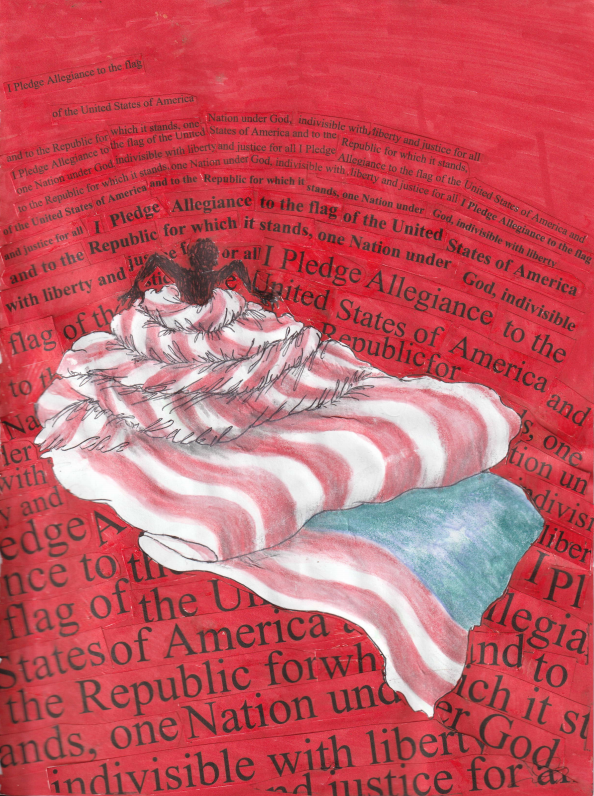And to the Republic, for Which We Sit
October 30, 2017

At 8:05 every morning, a familiar request is heard in every Rindge classroom: “Please stand for the pledge.” But Olivia Shirley, a sophomore, leans back in her chair.
“I just sit down and don’t pay attention,” said Shirley on the daily ritual. Shirley explained that she does believe in the sentiments of the pledge, but “not to the point where I would stand for a creepy chant.”
The question of whether to stand or sit for this Rindge routine echoes a national debate sparked by the recent controversy over professional athletes kneeling during the national anthem.
Freshman Ahmed Benghomari sits as well: “I always sit down because [the pledge]’s an elementary [school] thing. I already pledged allegiance for like five, six years of my life, so I don’t think I have to do it anymore.”
While the Cambridge Public School District requires that the pledge be read every morning, few Rindge students seem to stand for the recitation, and rarely do they face resistance from their teachers.
“I don’t ask them to do anything,” said Ms. Read, a history teacher. “I fundamentally feel that every student has the option to feel how to interact with any sort of pledge or anthem on their own.”
Ms. Read added that requiring students to recite the pledge would be a violation of federal law. Though Section 69 of Chapter 71 in the Massachusetts General Law requires teachers to facilitate the pledge, the Supreme Court ruled that students could not be forced to recite the pledge or any part of it in a 1943 case, West Virginia v. Barnette.
CPSD does not require students to recite the pledge, as stated in the district’s “Guide to Policies,” but the district expects those who choose to sit while it is read to do so without “interruption or disruption.”
While Read doesn’t require that students stand for the reading, she personally believes that it is a “good moment to reflect on the values of this nation.”
Junior Gassendina Lubintus says her decision to sit for the pledge is a statement to the nation, explaining, “Because I’m not born here … and even though I’m an American citizen, I don’t feel like I’m an American.” Lubintus, who was born in Haiti, takes issue with the end of the pledge, saying, “There’s [the phrase] ‘equality for all’ [in the pledge], but I feel like there actually isn’t [in America].”
While many Rindge students prefer that the pledge be optional, their opinion is not echoed in most other parts of the nation. Rasmussen Reports found that 68% of American adults believe students should recite the pledge every day.
French teacher Ms. Piotrowski has been teaching at Rindge for 30 years. Her policy on the pledge has been to “ask students to be quiet and to listen; to meditate.”
For Piotrowski, the pledge means a lot. “It means respect for the country. It’s a sign of respect to the nation and what it represents,” she said.
Piotrowski concluded, “Maybe I’m traditional, but that’s just the way I am.”
This piece also appears in our October print edition.










